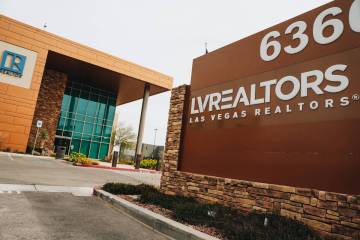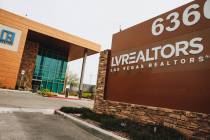Lender has priority in HOA foreclosures
NOTE: Sometimes,my readers’ questions — like this one — demand I seek advice from other professionals. This week, I’ve invited attorney Avece M. Higbee to weigh in on this foreclosure issue.
Q: I read in your Nov. 15, 2015 column that a unit owner may redeem their property within 60 days after foreclosure. I have questions about the process and hope you can clarify my concerns:
1. Can a bank foreclose during this 60-day period that allows a unit owner to redeem title to the property since the homeowners association has already had a sale of the property and received a certificate of sale? The bank had previously paid the nine months assessment fee. The bank filed a breach and notice to sell, and a notice of sale and recorded a trustee deed. The HOA received a certificate of sale and it was recorded on April 1, only eight days after the bank’s notice of sale.
2. Would the bank be required to redeem instead of foreclosing on the property?
3. Would the bank be required to reimburse the HOA for legal fees?
The HOA attorney has advised the board that the bank is permitted to foreclose and the HOA cannot proceed further. Is this correct?
I would greatly appreciate any information you can provide on this problem. I have attached a copy of the recorded documents.
A: Yes. The lender can foreclose its lien if it has paid the nine-month superpriority amount prior to the association’s foreclosure. The payment of the nine-month superpriority amount preserves the lender’s priority over the association’s lien for unpaid assessments. The association’s foreclosure does not wipe out the lender’s priority position regardless of whether there is a buyer or if the association takes title.
If an association forecloses on a lien because an owner did not pay association dues, Nevada law gives the owner a right to get the unit back with the payment of back dues, foreclosure expenses, maintenance expenses, taxes, interest, etc. This right of redemption must be exercised within 60 days from the date of the association’s foreclosure sale.
The only persons who may redeem the unit following the foreclosure by an association are: 1.) the unit owner or 2.) lenders whose interests are subordinate to the association’s lien.
Nevada law requires the association to give notice of its foreclosure to the lender. The lender then has the choice of paying the nine-month superpriority amount or not.
If the lender pays the amount at least five days prior to the association’s foreclosure sale, it has the right to redeem the unit should the association foreclose. A lender that has not paid the nine-month superpriority amount would be subordinate to the association’s lien and would not have the right to redeem the unit.
For a lender to redeem a unit, it must serve a notice of redemption on the person who conducted the sale and on the person who purchased the unit at the association’s foreclosure sale. And, the lender must provide the deed of trust, assignment, and an affidavit of the amounts due. This notice and information must be provided within 60 days of the association’s foreclosure sale.
Of course, the lender must pay the assessments, any taxes paid during the 60 days, maintenance expenses and interest. If the lender complies, it receives a deed without warranty that gives it all of the interest that the owner had in the unit.
The lender may redeem the unit even if the association took title to the unit following the foreclosure sale. An association becomes an owner of a unit if there are no bidders at the association’s foreclosure sale. It generally bids the amount that is due to the association; if no one else bids, it takes title to the unit.
If the lender has paid the nine-month superpriority amount, there may not be many bidders, since any purchaser would take title to the unit subject to the lender’s deed of trust. If the lender (who has paid) commences foreclosure on its deed of trust, it does not matter who took title to the unit at the association’s foreclosure sale. The outcome is the same. The lender has superior rights.
Associations generally prefer that a lender redeem a unit rather than foreclose. If the lender forecloses, the association generally only gets the nine-month superpriority amount.
This is the case even though the association has spent money on the foreclosure process or other expenses. If the lender redeems the unit, the association could get the assessments, any taxes paid and maintenance expenses.
In the particular situation you described, the association was left without the unit, without reimbursement for foreclosure costs, without the chance to recoup out of pocket costs and with only nine months of assessments. Other associations have been or are in the same position. Most of the time, this situation is unavoidable for the association. But, there are a couple of practical actions that can be taken:
■ Do not wait to take action to collect unpaid assessments. The association clearly has to comply with the law and provide the schedule of fees, a proposed repayment plan and notice of the right to contest the obligation 60 days prior to any lien action. However, often associations waste time in the collection process giving the delinquent owner and the lender more time.
■ Check on the lender’s foreclosure. This should be done several times during the collection process. There may be times when the association does not want to proceed to the next step. For example, if the lender has set a sale date, the association may not want to send out its notice of default. Keep in mind here that the lender may take an extraordinarily long time to foreclose. A board should address such decisions with the association’s general counsel as there are other laws that apply here.
■ Know the process. An association can foreclose on its lien under NRS 116 or may file a lawsuit in court to seek collection of unpaid assessments. A board should know the collection process in either action in order to be efficient in its decisions at each point of the collection action.
Avece M. Higbee is a shareholder with the law firm of Marquis Aurbach Coffing. She is an AV rated attorney with Martindale Hubbell. She is listed in Mountain State Super Lawyers 2015 and 2016 and named to the 2016 and 2017 Edition of Best Lawyers® list.


























